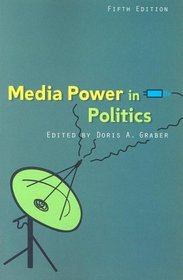Search -
Media Power in Politics
Media Power in Politics
Students find it difficult to sort through the wealth of literature on media power and make sense of it all. Doris Graber selects the best of this rich and burgeoning literature to reflect the most thought provoking and recent scholarship about traditional and "new" media and analyze mass media effects on the American political system. Crite... more »
Students find it difficult to sort through the wealth of literature on media power and make sense of it all. Doris Graber selects the best of this rich and burgeoning literature to reflect the most thought provoking and recent scholarship about traditional and "new" media and analyze mass media effects on the American political system. Crite... more »
ISBN-13: 9781933116778
ISBN-10: 1933116773
Publication Date: 7/30/2006
Pages: 454
Edition: 5
Rating: ?
ISBN-10: 1933116773
Publication Date: 7/30/2006
Pages: 454
Edition: 5
Rating: ?
0 stars, based on 0 rating
Genres:
- Reference
- Nonfiction >> Social Sciences >> Communication & Media Studies
- Politics & Social Sciences >> Politics & Government >> Ideologies & Doctrines >> Nationalism
- Politics & Social Sciences >> Politics & Government >> Political Science
- Politics & Social Sciences >> Politics & Government >> Elections & Political Process >> Elections




